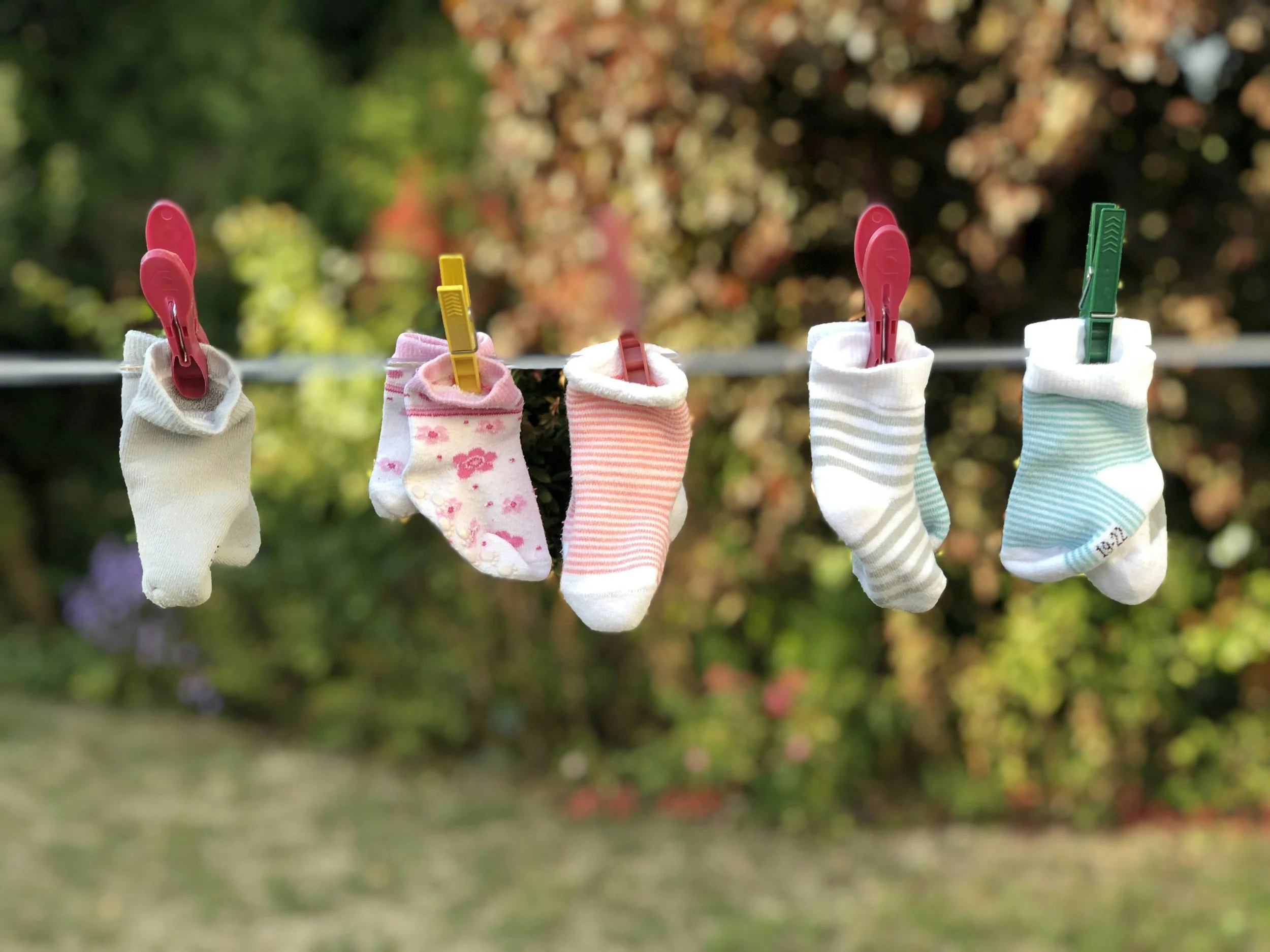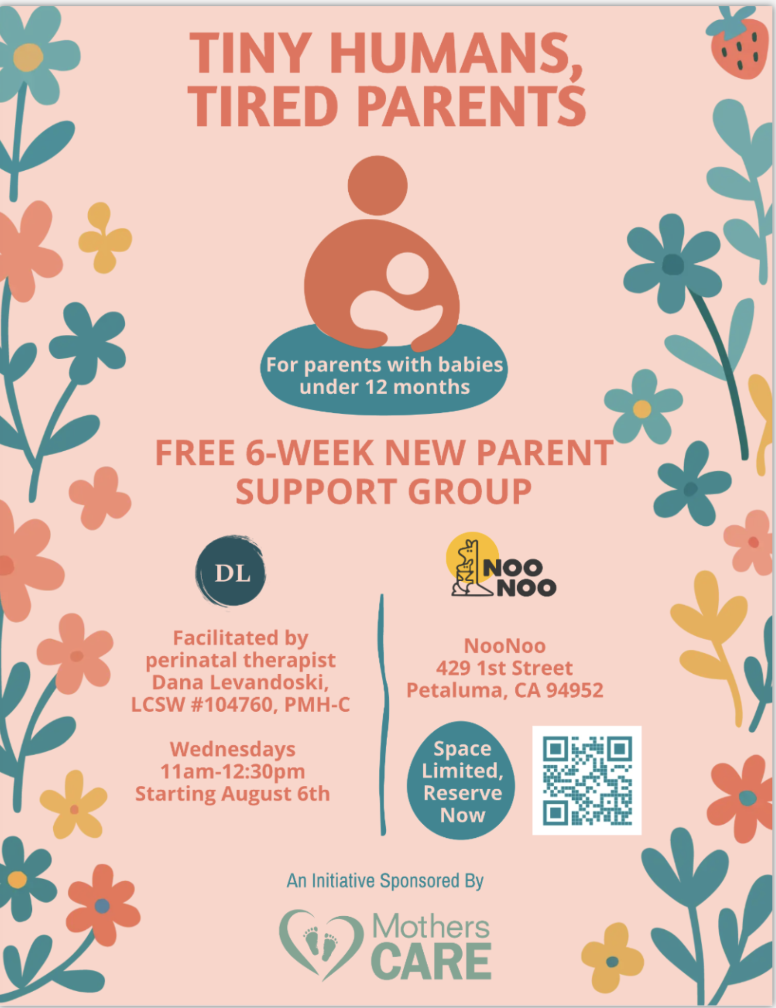How To Handle In-Laws, Grandparents, and Unsolicited Parenting Advice
You’ve had a baby. Or maybe you’re still pregnant. Or maybe you're somewhere in between - trying to raise a child without totally losing yourself in the process.
And then they show up.
The well-meaning but very opinionated family members.
You love them. You really do. But you also kind of want to scream when they say things like:
“Back in my day, we just put babies to sleep on their stomachs, and look how you turned out!”
“I don’t remember being this tired.”
“That baby must be freezing without socks!” (Even though you’ve already lost three pairs today.)
Whether it’s your mom, your partner’s dad, or a stranger at the grocery store, unsolicited parenting advice can feel extra loaded, especially when you’re sleep-deprived, adjusting to a new identity, and just trying to survive.
Why Unsolicited Advice Feels So Personal
When someone comments on your parenting, it doesn’t land as a neutral suggestion. It hits like:
You’re doing this wrong.
You’re messing up your child.
You don’t know what you’re doing.
You’re not a good parent.
Especially in the fog of postpartum, these remarks can feel like daggers. And if you’re navigating anxiety, intrusive thoughts, or just haven’t slept more than two hours in a row, it’s no wonder you’re feeling extra tender.
Consider the Source
Who is giving the advice?
Is it someone you love and trust, like a parent or in-law who means well, even if their delivery is off? Or is it a stranger at Target with strong opinions about car seats?
Understanding their intention doesn’t mean you have to accept their input, but it might help you respond with less emotional weight.
Scripts + Strategies to Try
Here are a few go-to responses for when you’re feeling cornered by advice you didn’t ask for:
1. Ignore it completely.
“Cold feet? Yep—we’ve lost three pairs of socks today. Babies are wild like that.” Smile. Move on.
2. Defer to the expert.
“We’re following our pediatrician’s guidance on this one.”
“I’ll ask our pediatrician at our next visit!”
3. Set a gentle boundary.
“I appreciate the suggestion, but we’re trying something different that works for us.”
“I know you’re coming from a good place, but I’m learning and need a little space to figure things out.”
4. Use humor or sarcasm.
“Oh totally! And I bet you rode home from the hospital in someone’s lap, right?”
Sometimes laughter disarms the moment better than anything.
5. Have your partner take the lead.
If the advice is coming from their side of the family, they may be the better person to communicate any limits.
6. Walk away or stay silent.
You don’t owe anyone a debate about your parenting. You can just smile, nod, and keep doing your thing.
A Reminder: You’re Not Doing It Wrong
Feeling insecure as a parent is so normal.
People often offer advice because they want to be helpful. They’re excited to share what worked for them.
But what worked for your aunt’s cousin’s neighbor in 1991 might not work for you in 2025. And even within your own home, what works for your first baby might not work for your second.
Every baby is different. Every parent is different. Every family is different.
You’re allowed to figure it out your way.
You Can Ask for Help (From the Right People)
Unsolicited advice? Not so helpful. But intentionally asking for help from trusted people? That can be a lifeline.
When I was in the thick of it, I had my go-to crew:
Bailey, a reasonable, real-talk coworker
Lauren, my super crunchy friend with all the holistic remedies
Kayt, another local mom going through it at the same time
Each gave advice in a way that felt encouraging, not judgmental. It helped me find what worked for me. The variety in their answers reminded me that there’s no single “right” way to parent, just the way that fits your style, your values, and your baby.
Build Your Village
There’s something special about hearing from older generations. And there’s something equally special about sharing life with someone who is in the exact same messy middle as you.
Find a support group, a parenting circle, or even just a friend who doesn’t judge your baby’s nap schedule (or lack of one).
If you’re local to Sonoma County:
Join the Petaluma Mother’s Club
Drop into reading circles and music classes at Grand Central, NooNoo, and Farmer Aaron’s Animal Music
Ease your way back into fitness (yoga) with MotherLoveYoga or
Check out my free new parent support group.
You don’t have to take every opinion to heart—but you don’t have to do this alone either
Final Thoughts
Parenting evolves fast. Just between my first and second child, the sleep advice, baby gadgets, and “must-haves” changed dramatically.
So be gentle with yourself. Trust your instincts. And remember that it’s okay to tune some people out. You’re doing better than you think.





